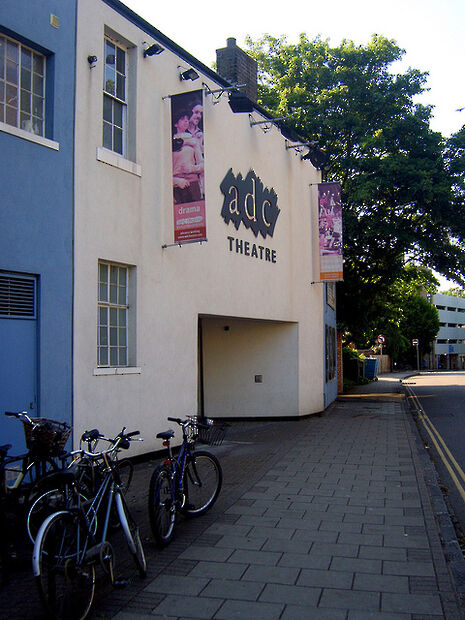A closed stage? An outsider’s critique of the Cambridge theatre scene
Rivkah Brown suggests what being ‘successful’ in the university’s drama scene entails and suggests we look further afield than the ADC and Corpus Playroom to find the crop of our theatrical talent

Cambridge is famous for its prolific and vibrant theatre scene, which produces more productions in a single week than most universities do in a term. Most of us will have attended shows, many will be frequent theatre-goers, and others as foolish as myself will even have succumbed to the temptation of reviewing. Yet the puzzling fact remains that the world of Cambridge theatre is something of a mystery to all but a privileged few. Without wishing to denigrate the great pantheon of performers, producers, directors, and technicians we have in Cambridge, whose skill and professionality occasionally make me proud of my university, I would like to politely point out some of the problems I see with Cambridge theatre.
By ‘Cambridge theatre’, I am speaking primarily (although not solely) about the larger theatres including the ADC and Corpus, and better-known theatre groups such as The Footlights and Pembroke Players. In fact, I am speaking about neither of these: I am speaking about people. A small group of people, in fact, which dominates the aforementioned theatres and companies. Never have I seen a larger show which hasn’t had one of these names on the cast list; too often have I seen shows where the cast list is a roll call of these names. The problem as I see it is partly social.
It is too often true in Cambridge that to be in big shows, you have to know people. Being a ‘successful’ (a term I have heard used by a Cambridge actor, of himself) Cambridge thespian and frequent appearances at the ADC bar often go hand-in-hand. Having attended particular schools or having particular parents are also known to give people a steadier footing when they first arrive on the Cambridge theatre scene. That said, it is naïve to criticise Cambridge theatre for too closely resembling the big bad world or, for that matter, most other extra-curricular societies in Cambridge. And thankfully, it remains generally true that the first and foremost determinant of theatrical ‘success’ in Cambridge is talent.
Nor is there anything inherently pernicious about the friendships of those involved in the theatre. One of the greatest things about the production process is the bond it creates amongst cast and crew. There is nothing wrong about wanting to put on a play with friends. The difficulty is that the social lines along which Cambridge theatre is run occasionally jeapordise the quality of the drama itself: I once saw a play at the ADC which anyone might have sold on the cast list alone, and yet which turned out to be shockingly bad. How could this play, not only badly performed but badly scripted, have ever made it through the endless hoops one has to jump through to even submit a show to the ADC? It was nepotism gone horribly wrong.
The problem with Cambridge theatre is also, in part, temporal: the key shows to be in as one of the hundreds of aspiring actors who flood into Cambridge every year are the ADC and Corpus Freshers’ Shows. It is at this point that much of the new acting talent is established, and the Cambridge theatre circles begin to contract, making it harder to get into Lent’s big shows. This generates a vicious cycle for actors, whose only ways to improve are to act with people who are better than them and to act a lot: actors get parts in important shows such as these, get more parts as a result, get better at acting, get more parts, and so the cycle continues ad infinitum.
I am aware that my critique of Cambridge theatre has been largely cynical, but my focus has also been narrow: pastures just as green lie beyond the cliques of the ADC and Corpus, and many of the best shows I have seen have been have been by smaller companies, unknown actors and first-time directors. Plenty of opportunities are available for those who wish to try their hand at acting, directing, producing or tech on a smaller scale.
My problem is that there remains an atmosphere of nepotism which widens the gap between the higher echelons of Cambridge theatre and the rest, whose talent is being stymied by a group of individuals, whose talent and wholehearted dedication to the theatre can only be applauded, yet whose unfair hogging of the limelight simply cannot.
 News / Cambridge study finds students learn better with notes than AI13 December 2025
News / Cambridge study finds students learn better with notes than AI13 December 2025 Features / Should I stay or should I go? Cambridge students and alumni reflect on how their memories stay with them15 December 2025
Features / Should I stay or should I go? Cambridge students and alumni reflect on how their memories stay with them15 December 2025 News / Uni Scout and Guide Club affirms trans inclusion 12 December 2025
News / Uni Scout and Guide Club affirms trans inclusion 12 December 2025 Comment / The magic of an eight-week term15 December 2025
Comment / The magic of an eight-week term15 December 2025 News / Cambridge Vet School gets lifeline year to stay accredited28 November 2025
News / Cambridge Vet School gets lifeline year to stay accredited28 November 2025








